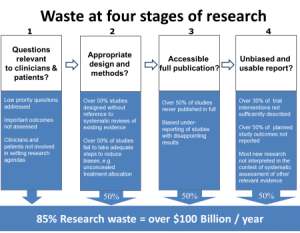The new ‘UK Local Information Pack‘ has been introduced today, 5th June to support the set-up of NHS / HSC research in the UK.
The ‘UK Local Information Pack’ is the set of documents that NHS / HSC organisations use to formally start preparing to deliver the study. You can find more information here, including what comprises the pack. All researchers wishing to set-up their study at an NHS/HSC site from today, 5th June, need to be aware of this change.
The Organisation Information Document
Researchers and research teams may be aware of a document called the ‘Statement of Activities’ – this is essentially a document that allows the sponsor to make clear to the research site, what activities will be undertaken locally. The document can also act as the agreement between the sponsor and site.
From today the Statement of Activities has been replaced by a document called the ‘Organisation Information Document‘. For non-commercially sponsored studies, that are not clinical trials or clinical investigations, the ‘Organisation Information Document’ should be used as the agreement between sponsor and participating NHS / HSC organisation.
A new delegation log template
Another feature of the new UK Local Information Pack is the inclusion of a delegation log template, which is intended to be used at participating NHS / HSC organisations. This will allow NHS/HSC organisations to locally record who will be working on the study and who is authorised to undertake study tasks. The delegation log can be found here and should be used for studies submitted for approvals from today.
Schedule of Events or Schedule and Events Cost Attribution Tool (SoECAT)
For non-commercially sponsored studies studies an IRAS Schedule of Events or a SoECAT will be a part of the IRAS Form submission and is used in the UK Local Information Pack as a way of providing clarity to participating NHS / HSC organisations on the cost attributions associated with a study.
Further help and guidance
Guidance on the use of the new UK Local Information Pack has now been published in the Site Specific page of IRAS Help to help applicants get ready for the change.
If you are making an IRAS Form submission or planning to set up research in an NHS / HSC organisation from today, 5th June 2019 please read the transition guidance so that you prepare the correct materials.
If you have any queries regarding any of the information provided above, or would like some guidance with regard to implementing your research in a healthcare setting – please get in touch with BU’s Research Ethics team.
You can also take a look at the Clinical Governance blog for documents, links and training opportunities.













 Dr. Ashraf cited on ‘Modest Fashion’ in The Guardian
Dr. Ashraf cited on ‘Modest Fashion’ in The Guardian NIHR-funded research launches website
NIHR-funded research launches website Academics write for newspaper in Nepal
Academics write for newspaper in Nepal New paper published on disability in women & girls
New paper published on disability in women & girls Global Consortium for Public Health Research 2025
Global Consortium for Public Health Research 2025 MSCA Postdoctoral Fellowships 2025 Call
MSCA Postdoctoral Fellowships 2025 Call ERC Advanced Grant 2025 Webinar
ERC Advanced Grant 2025 Webinar Horizon Europe Work Programme 2025 Published
Horizon Europe Work Programme 2025 Published Horizon Europe 2025 Work Programme pre-Published
Horizon Europe 2025 Work Programme pre-Published Update on UKRO services
Update on UKRO services European research project exploring use of ‘virtual twins’ to better manage metabolic associated fatty liver disease
European research project exploring use of ‘virtual twins’ to better manage metabolic associated fatty liver disease